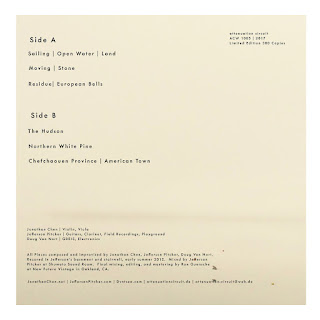An interview with Steven Krakow
1. Steven, you are a man of many talents but with a rather specified profile. How did it all start and evolve?
At an early age I started drawing images out of comic books and I was drawn to “oldies” and “classic rock” music on the radio—I’d go to garage sales and buy old albums and old MAD magazines, comics, etc. I delved into the Doors and Pink Floyd a lot, Dr. Strange and underground comics, and those led me deeper and deeper into psychedelia.
2. One aspect of your activity is the graphic design , for the lack of a better word, since it contains an abundance of styles, references and depth. You’ve had your own exhibitions and are also running a continuous strip in the Chicago Reader – The Secret History of Chicago Music, which was released as a book compilation in 2015 by Curbside Splendor. How many of the people do you know personally and was it difficult to gather all these interesting stories together? What is the common denominator in those stories – is it the urge to create a transparent visual chronicle of the artists who are deemed obscure really deserve attention – or maybe there is certain musical/artistic profile they fit into?
I think the Secret History of Chicago is fueled just by a bit of Chicago pride, as I have been here my whole life, and there sare so many incredible artists that deserve attention here. So many artists had bad luck, bad management, but are as great as anything one has ever heard—some made very uncommercial sounds and were forgotten—I like all these underdogs! I have gotten to know many of the musicians personally via interviewing them, though many have passed away. I’ve eevn gotten to book shows and collaborate with a few artists I covered, like Bil Vermette, Ono, and Phil Cohran.
3. One of the first items of your graphic output, which I later connected with the artist – namely you – was Galactic Zoo Dossier, A sort of a volume for all acid, psychedelic freakery. It is beautifully transporting through decades of more recognized (and still not really understood) artists, to more underground ones. What inspired you specifically to shape it graphically in the way it’s been published?
Well, it sort of came out of a few underground comics I had been doing as a teenager, then I decided I really wanted to get music in there, and cover all my interests if possible—comics, music, “the counterculture”, etc---I was inspired by hand-drawn publications like Punk, zines like Bomp and Ptolemaic Terrascope, and underground magazines like The Seed, Oz, Gandalf’s Garden etc.
4. Are you still active doing lectures at Stop Smiling HQ? How has it been going – I mean pre-virus times obviously?
No, that space is long gone, as is the Stop Smiling magazine, but I have been giving talks about Secret History of Chicago Music at various libraries and other places….
5. You are pretty busy with Plastic Crimewave Syndicate ( Formerly Plastic Crimewave Sound) but also other venues, avenues, and back roads such us Vision Celestial Guitarkestra, Moonrises, as well as Galactic Zoo Disk and Million Tongues Festival. Those are not only very interesting but they re- formulate certain domain or idiom in music that is close to your heart, I believe? Could you briefly describe each of them, please?
Yeah, Plastic Crimewave Sound broke up in 2010 or so, PCWSyndcate is a whole new line-up that has changed a few times---but generally we have a sound that sort of mixes heavy psychedelia, post-punk, biker rock, and free jazz and “krautrock.” The PCW Vision Celestial Guitarkestra is an occasional happening of as many guitarists as I can get to all drone on a particular chord, we’ve had up to 75 people! Usually there’s a drummer for dynamics, I conduct, and the goal is just to have a sort of magical ceremony—to all connect via ecstatic music. Moonrises is another broken-up band of mine, we had a bit of a prog flavor with keyboards and female vocals, some free-jazzy elements, but pretty weird and punky too, we put out 2 LPs and toured a bit. Galactic Zoo Disk is my label imprint with Drag City records, we’ve released about a dozen reissue and archival LPs, there’s a new one due next yearof east coast loner folk Bill Stone. Million Tongues festival is an occasional fest I’ve curated since 2004, we’ve had folks like Bert Jansch, Tony Conrad, Terry Reid, Peter Walker, Mark Fry, Ruthann Friedman, Keiji Haino, etc—I will be doing an online version July 5 and aug 2, with a lot of those artists, see link for details.
6. You are also known for your collection of 1960’s and 1970’s freakout artifacts. How does collecting helps to understand the spirit of those times and a formula of both art graphic vision and cultural aspect?
I don’t even think of it as “collecting” per se, I just have always bought and kept old stuff, since I was a kid, starting with comic books. I do get a lot of great inspirations for visual ideas, and I DJ records so that helps my income—it all has its purpose! (well I collect some stuff just for fun, like Mr. T items, ha)
7. Plans for the future?
My current duo with Sara Gossett, Spiral Galaxy, just released an LP on Cardinal Fuzz/Lion--we have a bit more of a kosmische sound, and when things get back to normal we’d like to tour for that (we had a bunch of shows and 2 festival appearances cancelled due to the virus). Slowly working on a new Galactic Zoo Dossier and a new musical collaboration with Glasgow sound artist Andrew Paine, called Rainbow Nothing.




Comments
Post a Comment